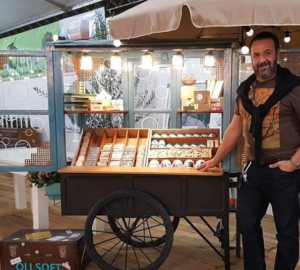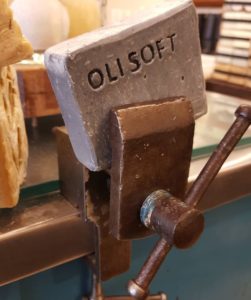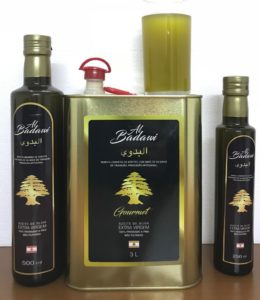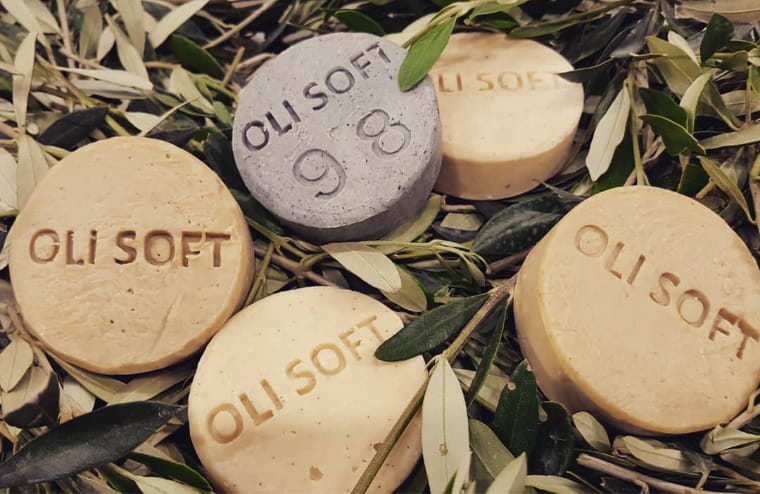São Paulo – Lebanese olive oil is the raw material for manufacturing a cosmetic line in Minas Gerais. Olisoft brand’s flagship is the olive oil-based soap created by Gabriel Tarquinio Bertozzi. Innovative in Brazil, the brand is inspired in the Arab tradition of producing cosmetics from olive oil. “In the Mediterranean, making soap from oil is part of their culture. I brought it back; for them it is a daily thing, but I refined it, made a whole store about it,” Bertozzi told ANBA.

The Brazilian is an agronomist, and for 18 years he has worked and spread the olive tree plantation in the region of Poços de Caldas, where he was born and now has the company’s stores. “Before that I used to work in landscape agronomy. Then I traveled to the south of Italy, in the ‘heel of the boot,’ and learned about it. Afterwards, I brough seedlings from Spain to spread the culture around here, traveled to Chile to learn more about their production and couldn’t stop since,” he said.
The olive oil used in the recipes is produced by the Al Badawi owned by Charbel Naim Barakat of Lebanon. “As I’m deeply involved with the olive oil topic, I ended up meeting Charbel, and his family has had the farm for 60 years. He is focusing on exports and supplies the olive oil I use now,” Bertozzi explained.

The brand owns two stores in the city in the south of Minas, which is known for its thermal waters and has tourism as its main sources of income. In its first point of sale, in the central Mercadão, Olisoft manufactures the soaps. “The idea is showing the tourists our processes. Now it’s quite artisanal, but I intend to have a bigger venue to manufacture them soon,” the business says. Although he has used the Lebanese product for a year, he created the company five years ago and has seen its public increase among the tourists.

The second store of the brand is inside the city’s Thermas, where visitors can bathe in sulfurous waters, as well as doing other activities and having access to its products. Since they arrived in the spa center, the brand expanded its portfolio to include other natural elements. “We have a soap made from sulfurous waters named Olea Sulfurosa,” the agronomist explained about the product that combines olea europaea, the olive tree’s scientific name, with the sulfurous waters of the spa. The brand also has creams and facial masks, a soap line with additions of bamboos, clays, and olive leaves, and even rock powder. The oil itself is sold in the stores as well.
Lebanese olive oil
While the olive tree plantation is relatively new in Brazil, the plant has been grown in the Eastern Mediterranean and Asia Minor for 5,000 years. The countries in the region, including Lebanon, have a tradition of producing it, and Bertozzi believes the plantation and local varieties make the Lebanese oil unique. “They have this culture embedded into their lives. And varieties of the plant such as Sourani, which is specific of the region. Culturally, they like unfiltered oil and quality, obviously,” the agronomist explains.

To reach this quality, the olive goes through stages that range from the crop to industrial processes to extract the oil. The plantation resulting in the premium oil by Al Badawy is in the north of Lebanon by the family of Charbel Naim Barakat. “It’s an artisanal production. Our oil is cold pressed in the stone mill, goes through a separation and selection process. We keep the tradition because our clients ask for this kind of oil,” Barakat told ANBA.
In Brazil for 29 years, the Lebanese says he started importing the product from his home country three years ago. Barakat says that, in addition to the production, they are also in charge of the industrial processes that take place in Lebanon. “Our oil is unfiltered. This is a tradition in the region and makes the product more natural,” he explained. He expects to have new partnerships with brands to include their oil to products as diverse as the soap.
Watch a video showing the oil production of the Lebanese company:
Translated by Guilherme Miranda




